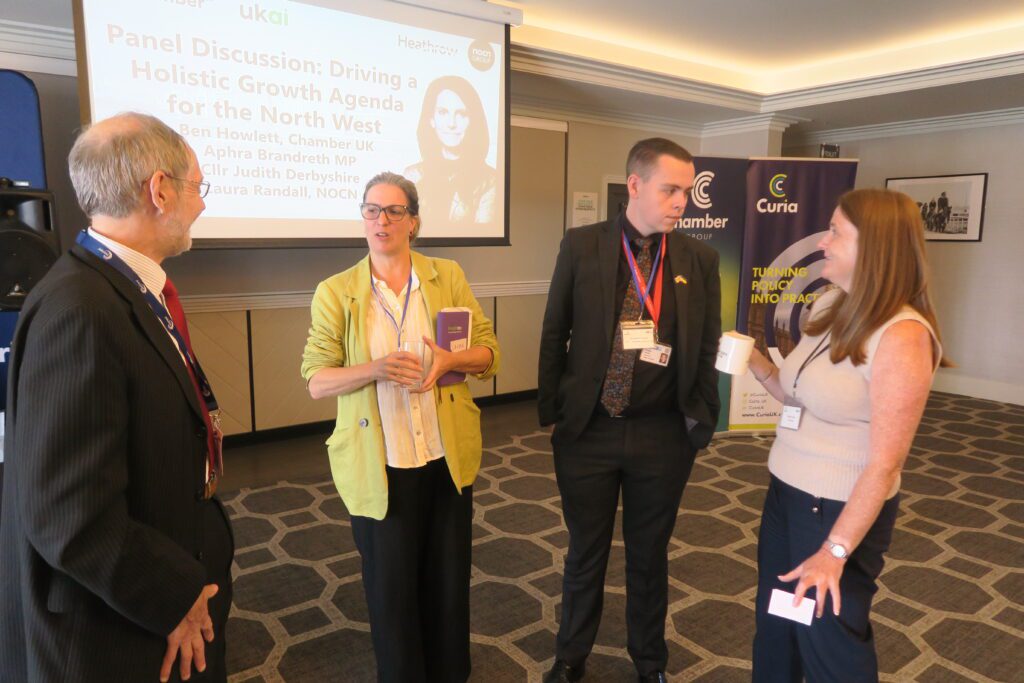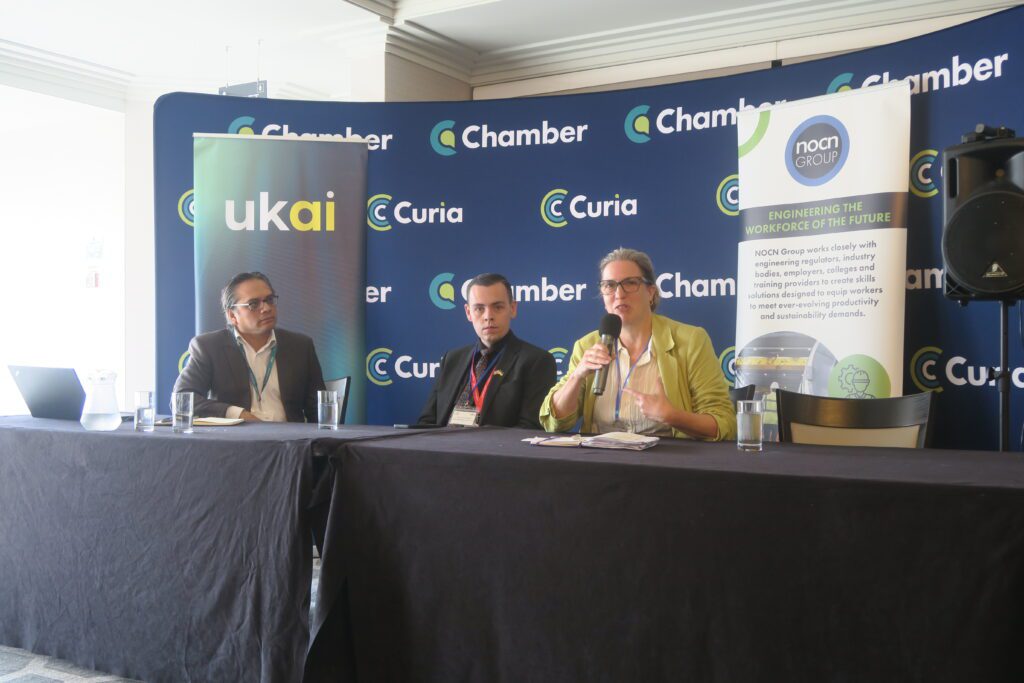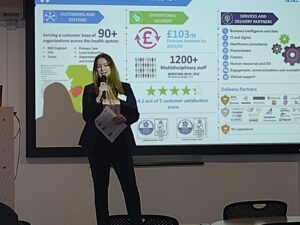On Thursday 11th September, Chamber Group, Curia and UKAI heard from a panel comprising Tim Flagg, CEO of UKAI, Councillor James Hansen, and Councillor Laura Robertson-Collins at the Get Britain Growing: North West Conference. The panel discussed development and growth in the Liverpool City Region, with local leaders, councillors, and policymakers exploring how economic growth can directly improve residents’ lives through improved housing, skill development, and sustainable and equitable innovation.
Growth with Purpose
Liverpool Local Councillor James Hansen emphasised that residents care most about the optics: when they can see and experience the visible impacts of growth. Jobs, area improvements and housing are thus prized, among constituents, over abstract growth statistics. Hansen cited Maghull, home of the largest mental health facility in Europe. He celebrated its plans for new digital health facility there which will focus on mental health, and bring thousands of jobs into the local area. Councillor Laura Robertson-Collins echoed Hansen’s emphasis: that strong local government is vital for delivering the housing, services, and community infrastructure upon which residents rely.
Housing and Regeneration
Laura Robertson-Collins described the chasm in Liverpool’s infrastructure: the city has 10,000 empty homes while 15,000 people are in housing need. She explained that many empty homes are privately owned, and that local government needs more flexibility and powers to reclaim and refurbish empty homes. Such housing shortage breeds aggravated, widespread resentment and social unrest, which manifests more often than not in a hike in anti-asylum and anti-refugee sentiments.
‘We are here to get growth to improve everybody’s lives’
Circular Economy and Waste Management
The circular economy was identified as a key growth sector, due to its advocacy of both environmental and employment benefits. Upcoming changes from the Environment Act will reshape waste collection and disposal, Robertson-Collins claimed; but she pushed beyond this, insisting on the desperate need for anaerobic digesters for city-wide for food waste collection. Reuse, recycling, and food waste initiatives can provide opportunities, she insisted, but they require collaborative support and incentives from national and regional levels of local government.
Planning and Infrastructure
The speakers agreed that planning delays and red tape are obstacles to growth; systemic inefficiencies disproportionately focus on objections, often stalling projects that could deliver significant economic and social advantages.
Not only those local to Liverpool, then, but national infrastructure shortcomings, such as the delayed Heathrow expansion, also impact regional growth. It is a developmental butterfly effect: expanding Heathrow would free up capacity at Liverpool John Lennon Airport, attracting more international investment and tourism to the North West.

Skills, Apprenticeships, and Graduate Retention
Liverpool boasts three universities, making higher education one of the city’s most major economic and talent assets. The retention of the city’s total 50,000 full-time students are vital for its vibrant economy – but their retention relies (and will increasingly rely) on housing availability, career opportunities, and continued investment in local services. More devolved education budgets, the speakers agreed, would allow local leaders to respond to regional skill demands, most of all in life sciences, digital technology, and the circular economy. Apprenticeships were also celebrated for their creation of a debt-free path into stable, skilled work.
North West Collaboration and Devolution
The panel’s speakers all agreed on the need for stronger collaboration across the North West – essential for sustainable development and growth. The Liverpool-Manchester rail link was cited as a prize opportunity – and mutual learning and shared expertise were touted, with the specific examples of Liverpool gaining from Manchester’s bus franchising model, and Manchester’s education via Liverpool’s rail innovation.
Public Perception of AI
Discussion also turned to artificial intelligence and its relationship with public trust. Although AI can, and in areas, has, improved healthcare through faster diagnoses and more efficient services, public anxiety remains high. The panel speakers agreed that used responsibly, AI can help reduce workloads, improve access to services, and enhance quality of life.
Next Steps
Local Governments are now committed to three key areas:
- Lobbying national politicians for Green Gas scheme support to enable new anaerobic digestion facilities.
- Presenting a Cabinet report to bring several hundred empty homes back into use.
- Hosting regional workshops to strengthen collaboration between metropolitan and non-metropolitan areas across the North West.
Ultimately, the panel agreed, a healthy ecosystem, a robust building system and having all the infrastructure and skills to unite those areas is critical.




